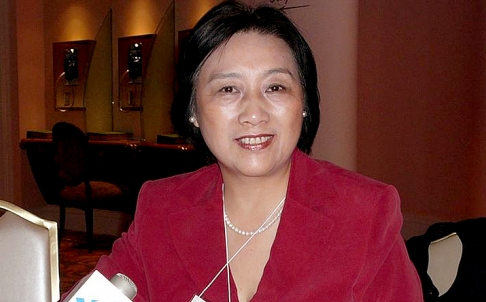President Xi Jinping’s tenure so far has seen a crackdown on free expression which has included the detention of several journalists as well as renewed efforts to guide and control media coverage. In their annual census of journalists in prison around the world, the New York-based Committee to Protect Journalists has put China at the top of the list with 44 journalists currently in jail. Half of those imprisoned are either ethnic Uyghur or Tibetan. CPJ’s Bob Dietz breaks down the list:
Here is the breakdown of the numbers of jailed journalists for this year, with comparisons to 2013. Of the 44 in jail for their work in China, 17 were Uighurs, largely from Xinjiang Uighur Autonomous Region. Last year’s number of seven imprisoned Uighurs was swelled in part this year with the sentencing of six of the seven students who worked with prominent Uighur academic and blogger Ilham Tohti, the founder and editor of the Uighurbiz website. A seventh student sentenced for his association with the website was a member of the Yi ethnic group.
The number of jailed Tibetan journalists is four this year, down from nine in 2013. One of the Tibetan prisoners released this year was filmmaker Dhondup Wangchen, a CPJ 2012 International Press Freedom Awardee who was freed in July. [Source]
While half of those imprisoned are ethnic minorities, the number of Han Chinese journalists and those working for mainstream media also increased this year. From James T. Areddy at the Wall Street Journal:
A significance in the figures is that 22 of those imprisoned are from mainstream publications or are journalists where ethnicity isn’t an issue, such as affairs in the fraught provinces of Tibetan and Xinjiang.
The group called the number a record since 1990, when it began keeping track. “A number of cases seem to reflect the increasingly repressive media and general political atmosphere that has evolved since President Xi Jinping came to power in March 2013,” said Bob Dietz, CPJ’s Asia program director.
China rejected the findings. “This organization you mentioned has always been biased against China,” Qian Gang, a spokesman for China’s Foreign Ministry, said when asked about the CPJ report at a regular press briefing on Wednesday. “Its report is also biased and unprofessional, as it has always been.”
Among the Chinese journalists newly jailed this year is 70-year-old Gao Yu, an outspoken reporter who has been accused of leaking state secrets. Ms. Gao faced a secret trial in November. Months before her trial, state television aired police footage of her dressed in prison garb and confessing to the crime, in what decried as a violation of due process. [Source]
For Al Jazeera, D. Parvaz discusses the reasons that China has more journalists in prison than in the past:
Gao Wenqian, a policy adviser with Human Rights in China, said there are two principal reasons for the new round of crackdowns: The increased outspokenness of journalists “in response to promises made by President Xi Jinping during his early days in office.”
“The escalated crackdown on journalists over the past year has been an effort by the authorities to control the media as they realized that things would get quickly out of their control if people really practiced what Xi Jinping said,” said Gao, adding that these fears are “compounded by the economic slowdown in recent years,” which he said has “sharpened social conflict.”
Also worth noting, said Gao, is that more than half the detained journalists are Tibetan or Uighur. “The persecution of ethnic minorities is part of the overall human rights situation,” he said. “The fear is that separatist dissent could produce a chain reaction in Taiwan and Hong Kong.” [Source]
Among those on the list are Gao Yu, a veteran reporter who has been tried but not yet sentenced for allegedly “leaking state secrets,” and Uyghur academic Ilham Tohti, who was sentenced to life in prison on “separatism” charges, partly for running a website that covered Uyghur affairs. Seven of his students who were sentenced to between three and eights years in prison for their work on the website are included on the list as well.
Read about each of the 44 journalists jailed in China, via CPJ. Paris-based Reporters Without Borders also named China as the top jailor of journalists in their annual report on press conditions around the world.
Read more about media conditions and press freedom in China, via CDT.








